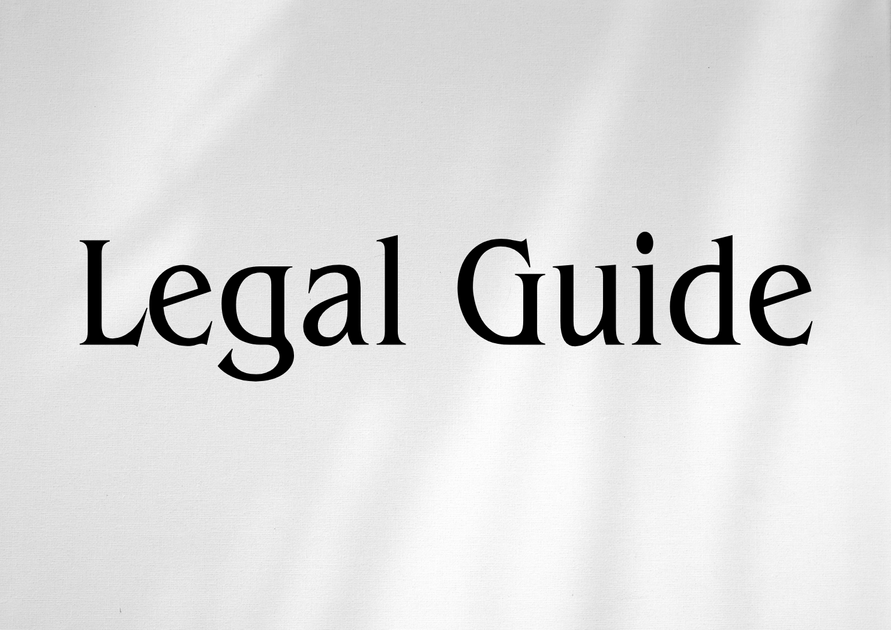Introduction: The Strategic Importance of Arbitral Awards and Their Enforcement in the UAE
Arbitration has established itself as a cornerstone for dispute resolution in the United Arab Emirates (UAE), particularly in the business, construction, and financial sectors. As the nation advances its legal infrastructure in line with its ambition to be a global investment hub, the efficacy and reliability of arbitral awards—and, crucially, their enforcement—are paramount. This remains especially true in the wake of recent legislative updates, notably Federal Law No. (6) of 2018 on Arbitration and the continuous judicial reforms into 2025. Understanding the updated legal landscape surrounding arbitral awards under UAE law is central to ensuring enforceability, risk mitigation, and legal compliance for businesses and practitioners navigating complex disputes.
This article delivers an authoritative analysis on the law and practice of arbitral awards and their enforcement in the UAE. Our legal consultancy perspective explores statutory requirements, procedural insights, practical implications, and strategic recommendations. We emphasize not only what the law stipulates but how entities in the UAE can anticipate risks, optimize legal process efficiencies, and maintain robust compliance in light of new and developing legal standards.
Table of Contents
- Overview of Arbitration Law in the UAE
- Issuance and Validity of Arbitral Awards
- Types of Awards and Critical Considerations
- Legal Procedures for Enforcement of Arbitral Awards
- Grounds for Annulment and Challenges to Arbitral Awards
- Comparing Old and New UAE Arbitration Laws
- Practical Guidance: Case Studies and Compliance Strategies
- Conclusion and Client Best Practices
Overview of Arbitration Law in the UAE
Federal Law No. (6) of 2018 on Arbitration and Key Provisions
The enactment of Federal Law No. (6) of 2018 (the “UAE Arbitration Law”) marked a turning point by aligning the nation’s arbitration framework with the UNCITRAL Model Law on International Commercial Arbitration. This modernization not only strengthened the UAE’s appeal for international investors but enhanced the reliability and enforceability of arbitral awards issued in the country.
| Key Article | Provision |
|---|---|
| Article 2 | Scope: Applies to both domestic and international arbitration when the seat is the UAE unless otherwise agreed. |
| Article 53-55 | Addresses the recognition and enforcement process of arbitral awards in local courts. |
| Article 59 | Outlines the limited grounds and procedures for challenging awards. |
Why the 2025 Updates Matter
Since 2018, the UAE has embarked on sustained legal reforms, with key procedural and institutional updates projected through 2025. These revisions not only streamline the arbitral process but fortify the mechanisms by which awards—domestic and foreign—are enforced within the jurisdiction. For international companies, seamless enforcement reduces transactional risk, while for local businesses, it ensures expedient dispute resolution.
Issuance and Validity of Arbitral Awards
Formal Requirements under UAE Law
The UAE Arbitration Law stipulates strict formalities for the issuance of a valid arbitral award. Failure to comply with these conditions can jeopardize enforcement. Requirements include:
- Written Form: All awards must be in writing (Article 41).
- Signature: Signed by arbitrators, with reasons for any omitted signatures recorded (Article 41(2)).
- Reasoned Decision: Awards should state the reasons unless parties agree otherwise (Article 41(3)).
- Date and Place: Awards must reference the issuance date and arbitration seat (Article 41(4)).
- Service on Parties: Parties must be provided with copies of the award (Article 44).
Practical Implications and Risks
From a consultancy standpoint, strict compliance with formal requirements cannot be overstated. Incomplete or improperly issued awards are highly vulnerable to annulment or refusal of enforcement by UAE courts. Professional diligence in documenting and serving awards can be the difference between swift remedy and protracted litigation.
Types of Awards and Critical Considerations
Distinction Between Final, Partial, and Interim Awards
The law recognizes several forms of arbitral awards:
- Final Awards: Resolve all disputes submitted, legally binding upon notification.
- Partial Awards: Determine some, but not all, issues (for example, liability but not quantum of damages).
- Interim Awards: Order provisional measures pending final decision (e.g. preservation of assets).
Impact on Enforcement
Final awards are enforceable under UAE law upon expiry of the challenge period or after dismissal of setting-aside applications. Partial and interim awards, while significant, may require court sanction for immediate enforceability, especially in cases involving injunctive relief or asset freezing measures. This distinction is vital for businesses seeking urgent remedies or staged dispute resolution strategies.
Legal Procedures for Enforcement of Arbitral Awards
Domestic Awards: Enforcement Process Under UAE Law
The enforcement of domestic arbitral awards is governed primarily by Articles 52 to 55 of the Federal Law No. (6) of 2018. The process is designed to achieve swift execution, though certain practical steps and pitfalls must be navigated skillfully:
- Filing Application: The award creditor files an application with the competent court (usually the local Court of Appeal at the arbitration seat).
- Submission of Documentation: The file must include the original award or authenticated copy, the arbitration agreement, and a certified Arabic translation if the award is in another language.
- Court Examination: The court reviews formal validity and compliance. Substantive review is not allowed unless there is a legal challenge.
- Issuance of Enforcement Order: If no grounds for nullification exist, the court typically issues an enforcement order within 60 days (Article 55).
Foreign Awards: Application of the New York Convention
The UAE is a signatory to the New York Convention (1958), which greatly facilitates recognition and enforcement of foreign arbitral awards. UAE courts must enforce foreign awards unless specific convention exceptions apply.
- Process Steps: As with domestic awards, an application must be submitted to the competent court with required supporting documents including translation, if necessary.
- Grounds for Refusal: Limited grounds aligned with Article V of the New York Convention (e.g. incapability of the parties, invalidity of the agreement, due process violations).
Visual Suggestion:
Consider inserting a diagram showing the enforcement workflow for both domestic and foreign arbitral awards, with key steps and timelines.
Grounds for Annulment and Challenges to Arbitral Awards
Statutory Grounds for Setting Aside (Article 53)
Under UAE Arbitration Law, challenges to arbitral awards are permitted strictly on enumerated grounds. The application for nullification must be brought within 30 days from notification of the award.
| Ground | Explanation |
|---|---|
| No Arbitration Agreement | Absence, invalidity, or lapse of the arbitration agreement. |
| Procedural Irregularity | Breach of due process, including failure to properly notify parties or improper constitution of the tribunal. |
| Capacity and Representation | Award issued against a party under incapacity or not properly represented. |
| Ultra Petita | Award exceeds the terms of the submission to arbitration. |
| Non-Arbitrability | Subject matter is not arbitrable under UAE law. |
| Contrary to Public Order | Award conflicts with UAE’s public order or morality. |
Risks and Mitigation Strategies
Frequent legal challenges include procedural lapses, improper notification, or failure to comply with the arbitration agreement. To mitigate risks, organizations should:
- Ensure comprehensive, clear, and properly executed arbitration clauses.
- Scrutinize tribunal appointments and procedural schedules.
- Maintain a transparent and documented communication record during arbitration.
Comparing Old and New UAE Arbitration Laws
| Aspect | Pre-2018 Law (Civil Procedure Code) | 2018/2025 Arbitration Law |
|---|---|---|
| Model Law Alignment | No direct alignment | UNCITRAL Model Law-based |
| Enforcement Timeframe | Longer, dual-phase reviews | Expedited (60 days court review) |
| Challenge Grounds | Broader and less defined | Streamlined, specific grounds |
| Interim Measures | Limited recognition/enforcement | Expressly recognized and enforceable |
| Party Autonomy | Restricted | Expanded; allows party-led procedures |
This legal evolution underscores the UAE’s commitment to harmonizing its arbitration regime with international standards, and provides greater certainty and efficiency for stakeholders.
Practical Guidance: Case Studies and Compliance Strategies
Case Study: Construction Dispute in Dubai
Fact Pattern: A multinational construction company is awarded AED 20 million after a two-year DIFC-LCIA arbitration in Dubai. The losing party fails to pay voluntarily.
Solution Path:
- The client’s counsel files for enforcement before the Dubai Court of Appeal, submitting the authenticated award and translation.
- The court examines the award’s form, finds it compliant, and issues the enforcement order within 50 days.
- The client’s compliance with procedural mandates (clear arbitration clause, translated documents, proof of notification) avoids delay and enables rapid asset seizure.
Compliance Checklist for Businesses
| Risk Area | Compliance Strategy |
|---|---|
| Arbitration Clause Drafting | Use institutional templates; ensure language is explicit and arbitration seat is clear. |
| Appointment of Arbitrators | Agree on institutionally qualified arbitrators with local legal acumen. |
| Procedural Timelines | Meet statutory deadlines for submissions, challenges, and enforcement applications. |
| Award Notification | Serve parties per law; maintain a record of service. |
| Language Barriers | Translate all documents into Arabic for court processes. |
Risk of Non-Compliance
The consequences of failing to comply with enforcement protocols can be severe—ranging from delayed asset recovery and additional litigation costs, to potential nullification of awards. Notably, recent UAE court decisions place the burden of procedural accuracy on the party seeking enforcement, making proactive compliance and legal oversight non-negotiable for effective risk management.
Conclusion and Client Best Practices
The UAE’s legislative updates for arbitration, encompassing both statutory reform and procedural modernization, are driving greater confidence in the enforceability of arbitral awards domestically and internationally. However, the evolving regime presents new challenges, particularly in meticulous compliance with procedural requirements and strategic case management. For clients—be they multinational corporates or local SMEs—success in arbitration extends beyond securing an award; it demands a rigorous, proactive approach spanning the drafting of effective arbitration agreements, disciplined observance of procedural rules, and expert legal guidance through enforcement proceedings.
Looking forward, the business and legal landscape in the UAE will increasingly favour those who demonstrate legal agility and robust compliance frameworks. Clients should engage experienced legal advisors, leverage institutional arbitration resources, and remain updated on regulatory developments to stay ahead in a competitive, arbitration-driven environment.



